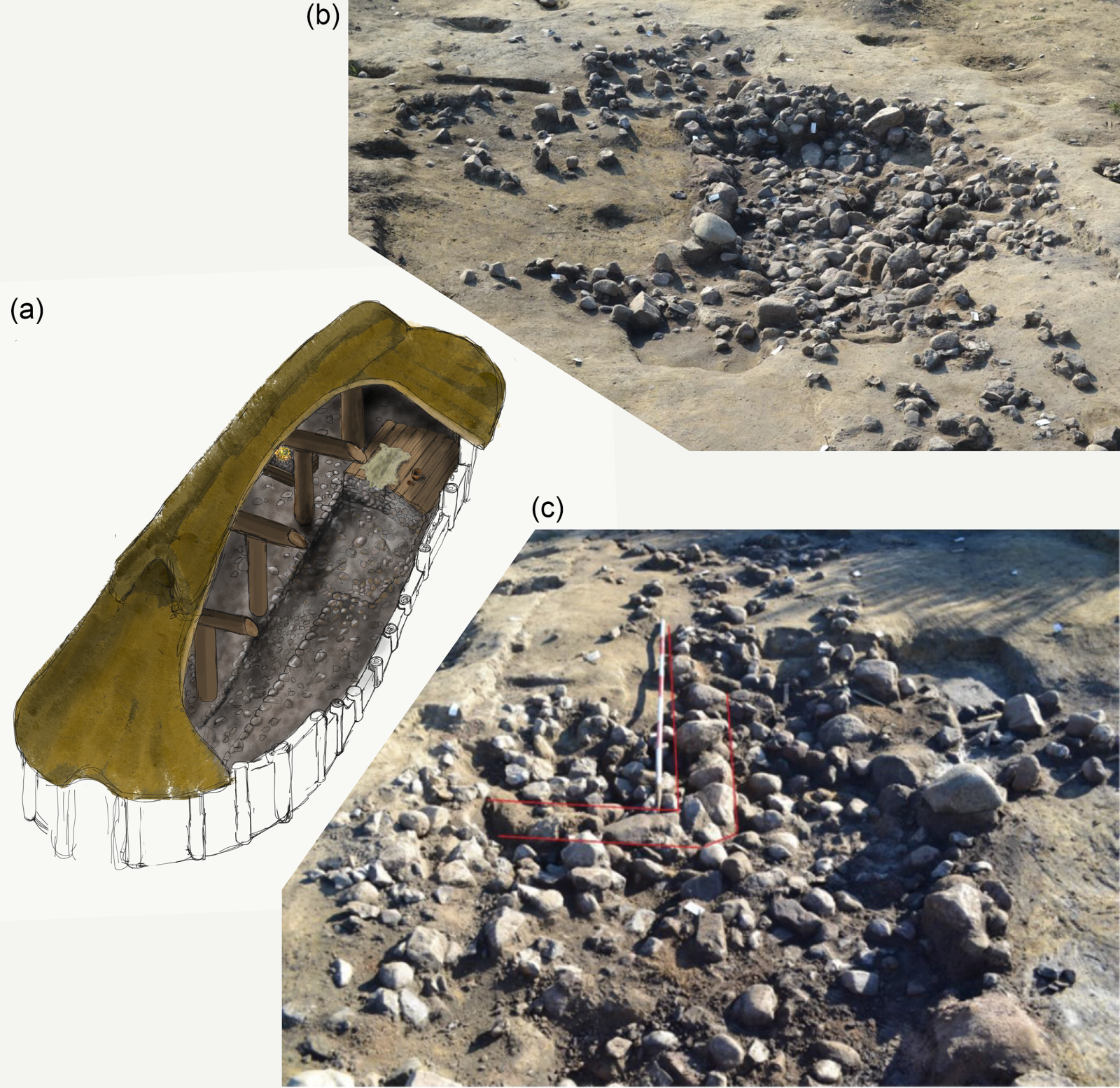This Neolithic cellar reveals a major advancement for humanity
Published by Cédric,
Author of the article: Cédric DEPOND
Source: Cambridge University
Other Languages: FR, DE, ES, PT
Author of the article: Cédric DEPOND
Source: Cambridge University
Other Languages: FR, DE, ES, PT
Follow us on Google News (click on ☆)
The inhabitants of this era, known for the Funnel Beaker culture, began the transition towards a sedentary lifestyle. They cultivated grains and raised domestic animals, marking a decisive turning point for humanity.

(a) Reconstructive drawing of the house.
(b) Overview photo of the cellar (view from the east, roughly aligned with the reconstructive drawing).
(c) Close-up photo of the cellar wall, marked by red lines, viewed from the west.
Drawing and photos: Lolland-Falster Museum.
The invention of the cellar highlights the importance of food preservation. By harnessing the stable underground temperatures, the harvests were protected from frost and heat, ensuring survival during the winters.
Analysis of the site revealed ancient houses built with wood and compacted earth. The techniques used, which were modern for the time, demonstrate an advanced understanding of the available materials.
In addition to the cellar, the excavations unearthed over 1000 artifacts, ranging from flint tools to pottery fragments. These objects tell the story of the inhabitants' daily lives.
Fence remnants, several centuries older than the houses, were also discovered. This detail suggests that the site had strategic importance long before the dwellings were established.
Archaeologists believe that these discoveries challenge preconceived notions about Neolithic societies. Their social organization and technical skills were far more advanced than previously thought.